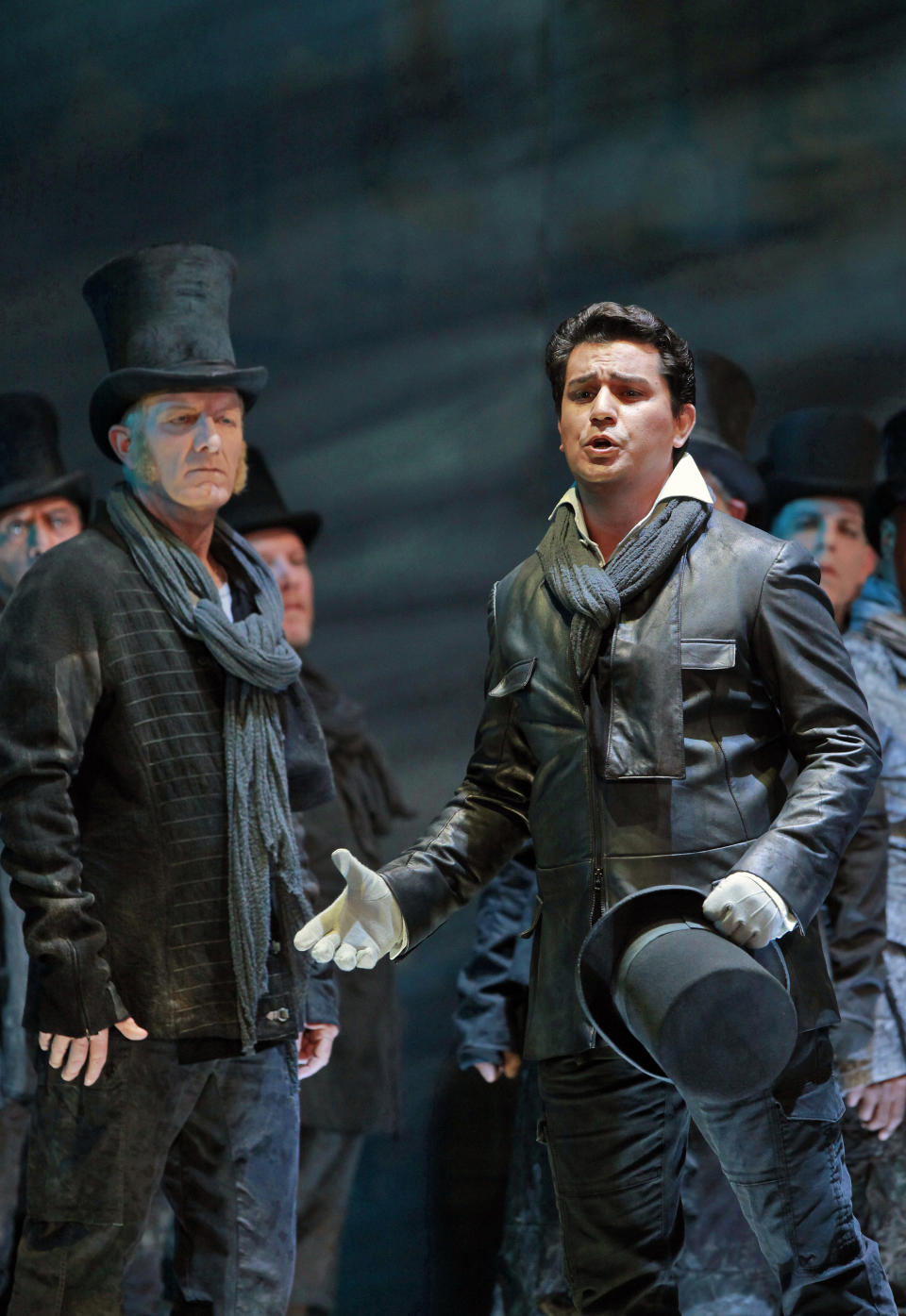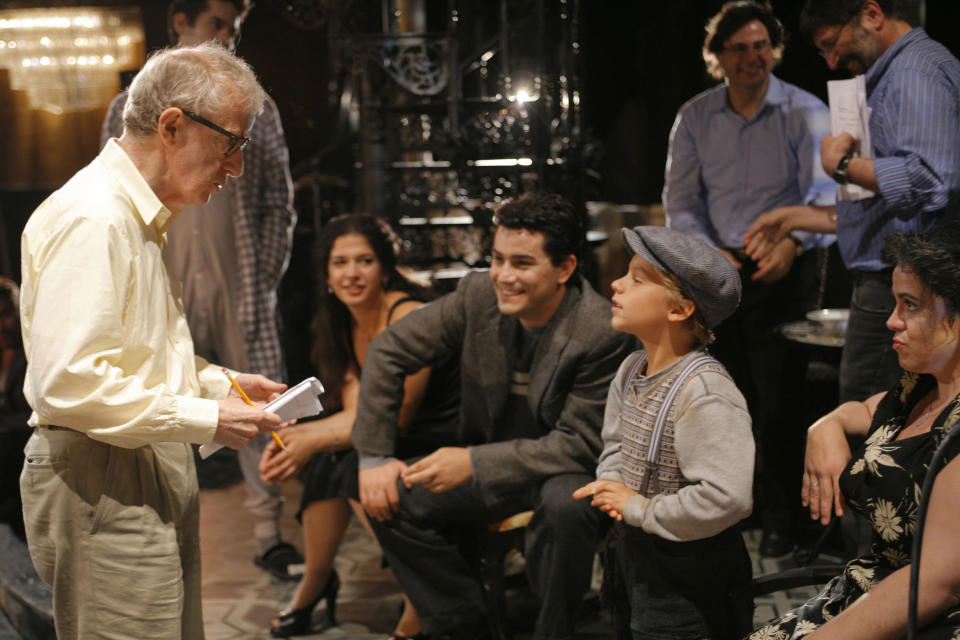Tenor Saimir Pirgu continues his rise in opera
NEW YORK (AP) — The unlikely encounter between first-time opera director Woody Allen and a budding Albanian tenor began with about 20 minutes of near-silence at rehearsal.
"I barely spoke English, and he barely spoke — at first," jokes Saimir Pirgu.
Then, in 2008, he was an emerging tenor who had one of the biggest breaks of his young career as a principal in an Allen-directed comedic opera.
Four years later, 31-year-old Pirgu is an even hotter hire in the music business. He's appearing with the San Francisco Opera in Bellini's "I Capuleti e i Montecchi," a reworking of "Romeo and Juliet" that runs through Oct. 19. Later this season, he'll sing at New York's Metropolitan Opera alongside Placido Domingo in Verdi's "La Traviata," and with the Chicago Symphony Orchestra under celebrity conductor Riccardo Muti.
His performance with Domingo will serve as a reunion: Both Domingo and the late Luciano Pavarotti, two of The Three Tenors, not only inspired Pirgu's career but also helped nurture it.
"I'll be at the Metropolitan singing with Domingo, and I was friends with Pavarotti. It's unimaginable!" says Pirgu, speaking from San Francisco via Skype — in Italian, since he's still learning English.
At the Met, he'll play a young man arriving in the big city and falling into a doomed love — a character a bit like himself, says Pirgu.
He left Albania a dozen years ago for Italy. Pirgu was the son of parents working in the metals industry in Elbasan, a small city in what was a struggling communist country when he was born. He started singing at about 2, and was plucked from kindergarten by the government for a special gifted-child education.
When communism fell in the early 1990s, his parents — one Muslim, the other Christian — lost everything, including their jobs. But Pirgu held on to his dream of studying voice in Italy.
"I told my mother, I'll never come back, whether or not I'm accepted at the conservatory," he recalls.
He was 18, with the equivalent of about $500 to his name, when he entered the conservatory in Bolzano, a northern Italian city where he could only afford a bed in a dorm run by priests, washing dishes for some money.
Months later, Pavarotti was vacationing at a nearby spa. He'd heard about the Albanian teen and was curious.
Led into a room with a piano to face the vocal master, "I was in shock," says Pirgu. He was literally speechless until Pavarotti asked what he'd like to sing.
"Una furtiva lagrima," the nervous teen blurted out fast — a famous love aria.
After two hours, Pavarotti was still listening, impressed and offering advice that continued for years through phone calls and coachings.
"He said you have to have perfect intonation and clean diction, then comes the rest," recounts Pirgu.
The rest is a voice critics have described as technically superb and musically distinctive.
The tenor first appeared at the Vienna State Opera when he was only 21, singing Mozart under the revered veteran conductor Claudio Abbado. Suddenly, Pirgu went from earning almost nothing to having $20,000 or $30,000 in the bank.
Then followed London's Covent Garden, Milan's La Scala, the Paris Opera, the Salzburg festival — and the list of top stages is still growing.
As general director in Los Angeles, as well as at the Washington National Opera until last year, Domingo brought Pirgu to both houses.
He calls him "one of the most promising lyric tenors of the younger generation."
Allen directed Pirgu in a 2008 Los Angeles Opera production of Puccini's "Gianni Schicchi" — the hilarious story of an old man who dies and leaves his family searching for his will, hidden in a pot of pasta.
What's kept Pirgu grounded amid early successes is having lived through "our suffering in the Balkans," he says. "Whoever suffers appreciates more what he has, and that saves me from getting lost in the world of egos that surround me."
___
Online:
http://www.saimirpirgu.com


